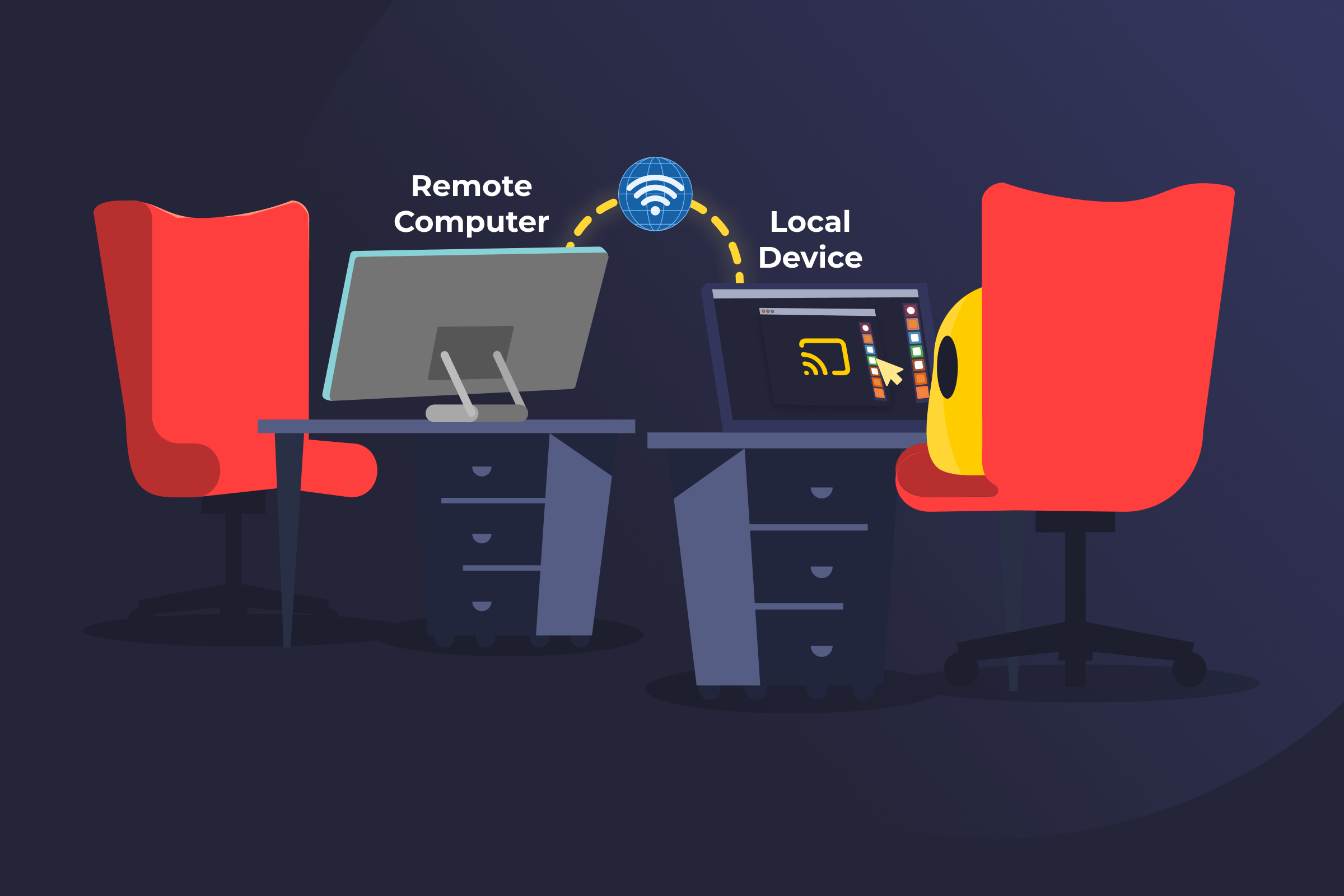Remote Computer

Remote Computer Definition
A remote computer is a computer that’s accessed and controlled without sitting in front of it, usually through the internet or a local network. It allows another device to view its screen, run programs, open files, and manage system functions remotely. This is done using remote access or remote desktop technology, which sends input commands to the remote computer and returns the output in real time. Common tools used for remote access are Microsoft Remote Desktop, TeamViewer, AnyDesk, Chrome Remote Desktop, and VNC-based tools.
How a Remote Computer Works
- A connection is requested: Remote access software sends a connection request to a computer over a network, usually the internet.
- Access is verified: The remote computer validates the request and allows access only when the correct credentials or permissions are provided.
- The remote screen is shared: After connection, the remote computer streams visual screen data to the controlling device.
- Input commands are transmitted: Keyboard and mouse input are sent from the controlling device to the remote computer.
- Actions are processed in real time: The remote computer processes the commands and continuously sends back screen updates, creating a live remote control session.
Benefits of Using a Remote Computer
- Work from anywhere: Access a computer and its files without being physically in front of it.
- Easy access to files and software: Use programs and data stored on another computer without transferring them.
- Support and troubleshooting: Fix issues remotely without on-site visits.
- Time and cost savings: Reduce travel and complete tasks faster through remote access.
- Centralized management: Manage one computer from multiple locations, which can simplify administration.
Risks of Remote Computer Access
- Unauthorized access: Weak passwords or poor security settings can allow unwanted users to access the computer.
- Data exposure: Sensitive files or information may be at risk if the connection is not properly secured.
- Malware attacks: Remote access can be used to install harmful software if security controls are bypassed.
- Network interception: Data sent between computers can be intercepted on unsecured networks.
- Misconfiguration: Incorrect setup can leave the remote computer open to unintended access.
Read More
FAQ
Many types of devices can connect to a remote computer as long as the remote access software supports the connection and a network connection is available. Common examples include desktop computers, laptops, smartphones, tablets, and thin clients. Supported devices depend on the operating system and the remote access software in use.
The difference between a remote computer and a local computer is based on location and access. A local computer is the machine that is physically nearby and directly used, with input and processing happening on the same device. A remote computer is located elsewhere and is accessed over a network, with input sent from another device and processing handled by the remote system.
A remote computer is one that’s accessed over a network from another location, even if that’s the next desk. A virtual machine is a software-based computer that runs on a host system while behaving like a separate environment. A virtual machine can also be accessed remotely, so the difference is that “remote computer” describes the access method, while “virtual machine” describes how the system is created and runs.

 45-Day Money-Back Guarantee
45-Day Money-Back Guarantee